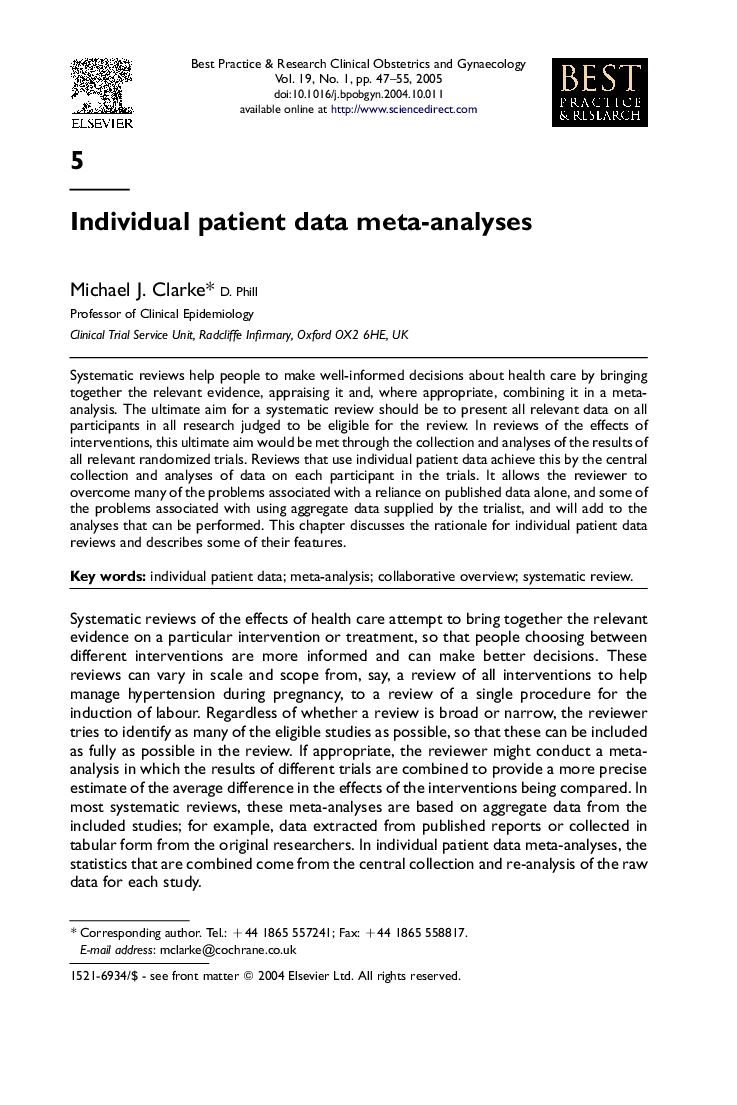| Article ID | Journal | Published Year | Pages | File Type |
|---|---|---|---|---|
| 9315761 | Best Practice & Research Clinical Obstetrics & Gynaecology | 2005 | 9 Pages |
Abstract
Systematic reviews help people to make well-informed decisions about health care by bringing together the relevant evidence, appraising it and, where appropriate, combining it in a meta-analysis. The ultimate aim for a systematic review should be to present all relevant data on all participants in all research judged to be eligible for the review. In reviews of the effects of interventions, this ultimate aim would be met through the collection and analyses of the results of all relevant randomized trials. Reviews that use individual patient data achieve this by the central collection and analyses of data on each participant in the trials. It allows the reviewer to overcome many of the problems associated with a reliance on published data alone, and some of the problems associated with using aggregate data supplied by the trialist, and will add to the analyses that can be performed. This chapter discusses the rationale for individual patient data reviews and describes some of their features.
Related Topics
Health Sciences
Medicine and Dentistry
Obstetrics, Gynecology and Women's Health
Authors
Michael J. (Professor of Clinical Epidemiology),
